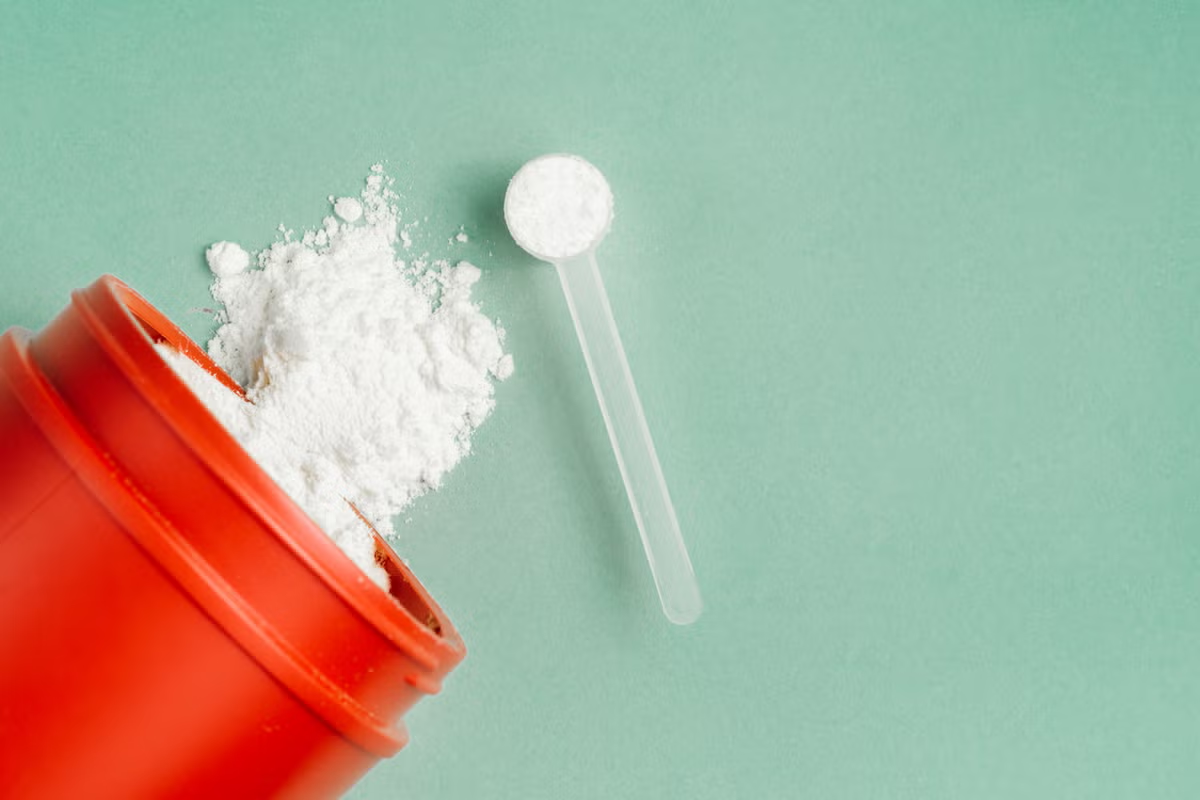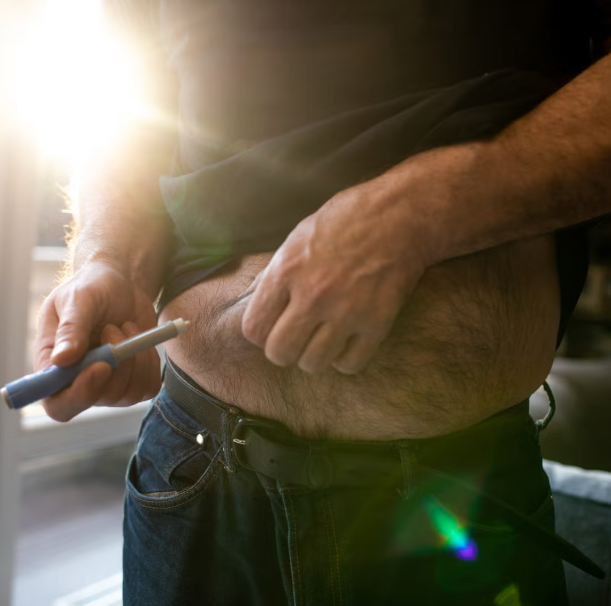CREATINE IS MORE popular than ever, and many guys credit the supplement for helping them build stronger muscles, boost their athletic performance and improve brain function. But taking creatine sometimes also brings an unwanted side effect: weight gain.
Creatine is a naturally occurring compound that helps supply energy to your muscles. Your body makes about half of what it needs in the liver, kidneys, and pancreas. The rest typically comes from your diet—mainly red meat, seafood, dairy, and other high-protein animal products, according to the Cleveland Clinic.
Lately, more people are turning to creatine supplements to help support their muscle energy levels. But like any supplement, they can come with side effects.
Weight gain is a well-known one, says Kristyen Tomcik, Ph.D., an assistant professor of nutrition at the Case Western Reserve University School of Medicine in Cleveland, Ohio. He says he experienced it personally during the first couple of weeks of going back on creatine after stopping the supplement for a while.
“But I think the thing that people should know when it comes to creatine is that it’s not weight gain in the sense of you are gaining fat mass,” Tomcik explains.
Why creatine can cause weight gain
THE NUMBER ON the scale may tick up after you start taking creatine because the supplement can increase “total body water,” says Aubrey Grant, M.D., director of sports and performance cardiology at MedStar Health in Washington, D.C.
“This happens because creatine is stored in skeletal muscle, where it pulls water into the muscle cells through osmotic effects,” he explains. This often results in about a 1- to 3-pound weight gain in the first week or two of supplementation.
“It is a predictable physiological response, and for most users, it is not harmful,” Dr. Grant says.
And, it’s not fat gain, he emphasizes.
The water weight gain from creatine is like what happens when you start a low-carb diet — just in reverse, Tomcik says. With creatine, your muscles hold more water. With low-carb diets, you often lose water weight at first because your body is depleting its stored carbohydrates, or glycogen, which hold water.
Water retention is more common during the early stages of taking creatine, Dr. Grant says. After a few weeks, the water weight gain usually plateaus, Tomcik explains.
“However, some degree of increased intracellular water in the muscles will persist as long as creatine supplementation is continued,” Dr. Grant adds.
Does it also increase muscle mass?
ONE OF THE most studied benefits of creatine supplements is its role in increasing lean muscle mass and strength, Dr. Grant says. Creatine improves energy stores in the muscles, allowing for greater energy availability during short bursts of high-intensity activity, such as weightlifting or sprinting.
Research suggests that supplementing creatine could increase muscle mass and lean body mass when combined with strength training. Tomcik says creatine typically gives you extra energy to “do a little more volume in the gym,” which over time usually translates to gaining muscle mass.
This might also increase the number you see on the scale.
“If someone is training hard, creatine can contribute to actual increases in muscle mass, not just water weight,” Dr. Grant says. “That form of ‘weight gain’ is generally desirable.”
What to do if you gain weight on creatine
MOST CREATINE WATER weight is minimal and will level out over a few weeks, Tomcik says. “It’s not really anything to worry about.”
Also, if you experience lean muscle gain, “that’s likely beneficial, especially for performance and metabolic health,” Dr. Grant says.
But if you’re pairing your creatine supplements with a poor diet or not strength training, you may gain weight that’s not favorable, Dr. Grant adds. When using creatine, he recommends having a structured resistance training routine, maintaining a balanced diet with adequate protein, and staying hydrated, as creatine increases muscle water content, so you need to hydrate more.
If you’re going full on with a 20-gram-a-day loading dose of creatine and not feeling great or your weight is increasing, Tomcik suggests cutting back to 3 to 5 grams a day and possibly increasing it slowly.
When to worry
CREATINE SUPPLEMENTS ARE safe for most men, especially when you take 3 to 5 grams a day, Dr. Grant says.
However, talk to your doctor before starting the supplement if you have kidney disease or a risk for kidney disease. Also, see your doctor if, after taking creatine, you experience bloating, GI distress, blood pressure increases, or significant weight gain without strength improvements.
“In general, for healthy men using creatine responsibly and paired with a solid training program, small increases in weight should not be a source of concern — they are often a marker of increased lean body mass and performance adaptation,” Dr. Grant says.
Related:
Should You Be Taking Creatine?
New study reveals the truth about creatine and hair loss















